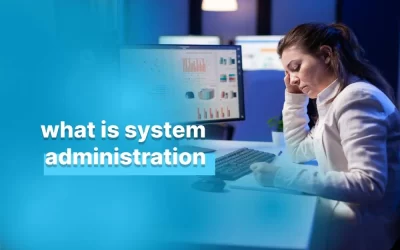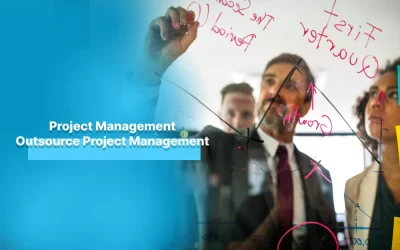CRM MS Dynamics Developer Customer Relationship Management (CRM) systems are essential tools for businesses to manage interactions with current and potential customers. Microsoft Dynamics 365, one of the leading CRM...
Outsource UX Design
outsource ux design In today’s fast-paced digital landscape, businesses are continually striving to create exceptional user experiences to stay ahead of the competition. User Experience (UX) design plays a crucial role...
What is outsourcing project management?
What is outsourcing project management? Project management is the application of knowledge, skills, tools, and techniques to project activities to meet project requirements. It involves planning, executing, and closing...
What is an Agile Coach?
What is an Agile Coach? An Agile Coach is a professional who helps organizations, teams, and individuals adopt and improve agile practices and principles. They play a pivotal role in facilitating agile transformations,...

DevOps Engineer
DevOps Engineer
The digital landscape is constantly evolving, demanding businesses to adapt and innovate at an ever-increasing pace. In this dynamic environment, DevOps engineers play a crucial role in bridging the gap between development and operations.
At Talents, we outsource comprehensive DevOps engineer designed to streamline your software delivery lifecycle and empower your teams to achieve optimal results.
Read More : Java software development outsourcing
What is a DevOps Engineer?
A DevOps Engineer is a professional who combines software development (Dev) and IT operations (Ops) skills to streamline the software delivery process. They play a critical role in automating processes, managing complex infrastructure, and fostering a culture of collaboration between developers and operations teams. By leveraging various tools and methodologies, DevOps Engineers aim to enhance productivity, reduce the time to market, and improve the reliability of software applications.
Key Responsibilities of a DevOps Engineer
Automation and Integration:
Continuous Integration/Continuous Deployment (CI/CD): DevOps Engineers design and implement CI/CD pipelines to automate the build, test, and deployment processes. This ensures that new code changes are automatically tested and deployed to production environments, reducing manual intervention and minimizing errors.
Infrastructure as Code (IaC): They use tools like Terraform, Ansible, and CloudFormation to manage infrastructure through code, enabling consistent and repeatable deployments across multiple environments.
Monitoring and Maintenance:
Read More A Comprehensive Guide to Becoming a Scrum Master

System Monitoring: Implementing monitoring solutions to track the performance and availability of applications and infrastructure. Tools like Prometheus, Grafana, and Nagios are commonly used to collect and visualize metrics.
Incident Management: DevOps Engineers are responsible for identifying and resolving incidents quickly. They establish and maintain incident response protocols to minimize downtime and ensure business continuity.
Collaboration and Communication:
Cross-Functional Collaboration: Facilitating communication between development, QA, and operations teams to ensure seamless integration and delivery of software products.
Documentation and Training: Creating and maintaining documentation for CI/CD pipelines, infrastructure configurations, and deployment processes. They also provide training and support to team members to ensure best practices are followed.
Security and Compliance:
Security Integration: Integrating security practices into the CI/CD pipeline (DevSecOps) to ensure that security is considered at every stage of the software development lifecycle.
Compliance Management: Ensuring that the infrastructure and processes comply with industry standards and regulations, such as GDPR, HIPAA, and SOC 2.
Essential Skills and Qualifications
To excel as a DevOps Engineer, one needs a diverse skill set that spans across development, operations, and automation. Here are some essential skills and qualifications:
Technical Skills:
Programming and Scripting: Proficiency in languages such as Python, Ruby, Go, and scripting languages like Bash.
Cloud Platforms: Experience with cloud service providers such as AWS, Azure, and Google Cloud Platform (GCP).
Configuration Management: Knowledge of tools like Ansible, Puppet, and Chef for automating configuration management tasks.
Containerization: Expertise in container technologies like Docker and orchestration tools like Kubernetes.
Soft Skills:
Problem-Solving: Strong analytical skills to troubleshoot and resolve complex issues quickly.
Collaboration: Ability to work effectively in cross-functional teams and communicate technical concepts to non-technical stakeholders.
Adaptability: Willingness to learn new technologies and adapt to changing project requirements.
Read More : php developer job description
Certifications:
AWS Certified DevOps Engineer: Validates expertise in deploying, operating, and managing applications on the AWS platform.
Certified Kubernetes Administrator (CKA): Demonstrates proficiency in managing Kubernetes clusters.
Google Professional DevOps Engineer: Recognizes the ability to design and implement CI/CD pipelines on Google Cloud.
Read More : Flutter Developer Job Description
Benefits of Hiring a DevOps Engineer
Faster Time to Market: By automating processes and improving collaboration between teams, DevOps Engineers help organizations release software updates more frequently and reliably.
Improved Quality and Reliability: Continuous integration and automated testing ensure that code changes are thoroughly vetted before reaching production, reducing the likelihood of bugs and downtime.
Cost Efficiency: Automation reduces manual effort and operational overhead, leading to significant cost savings over time.
Scalability and Flexibility: DevOps practices enable organizations to scale their infrastructure and applications dynamically, meeting changing business demands effectively.
Enhanced Security: Integrating security into the development pipeline (DevOps) ensures that vulnerabilities are addressed early, reducing the risk of security breaches.
Conclusion
In an era where software development is becoming increasingly complex and fast-paced, the role of a DevOps Engineer is more critical than ever. They bridge the gap between development and operations, enabling organizations to deliver high-quality software quickly and efficiently. By embracing DevOps practices, businesses can achieve greater agility, reliability, and security in their software delivery processes.
At Talents, our team of skilled DevOps Engineers is ready to help you transform your software development lifecycle. Whether you’re looking to implement CI/CD pipelines, automated infrastructure, or enhance security, we have the expertise to meet your needs. Contact us today to learn more about our technical outsourcing services and how we can help you achieve your goals.




